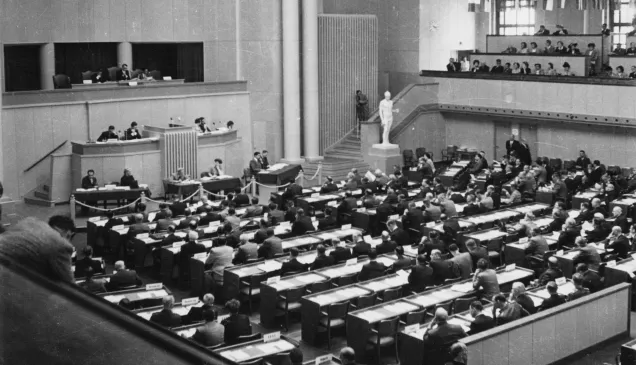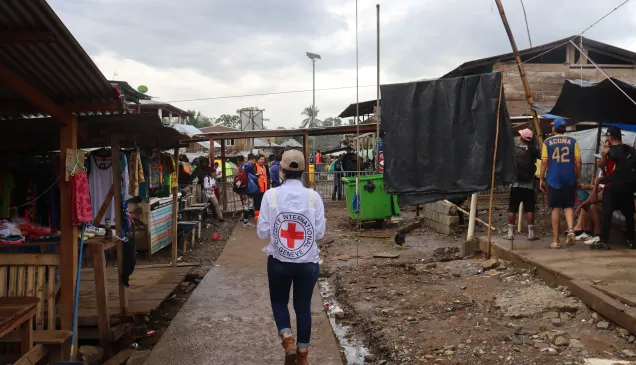Panama: Forensic support for host communities in Darien
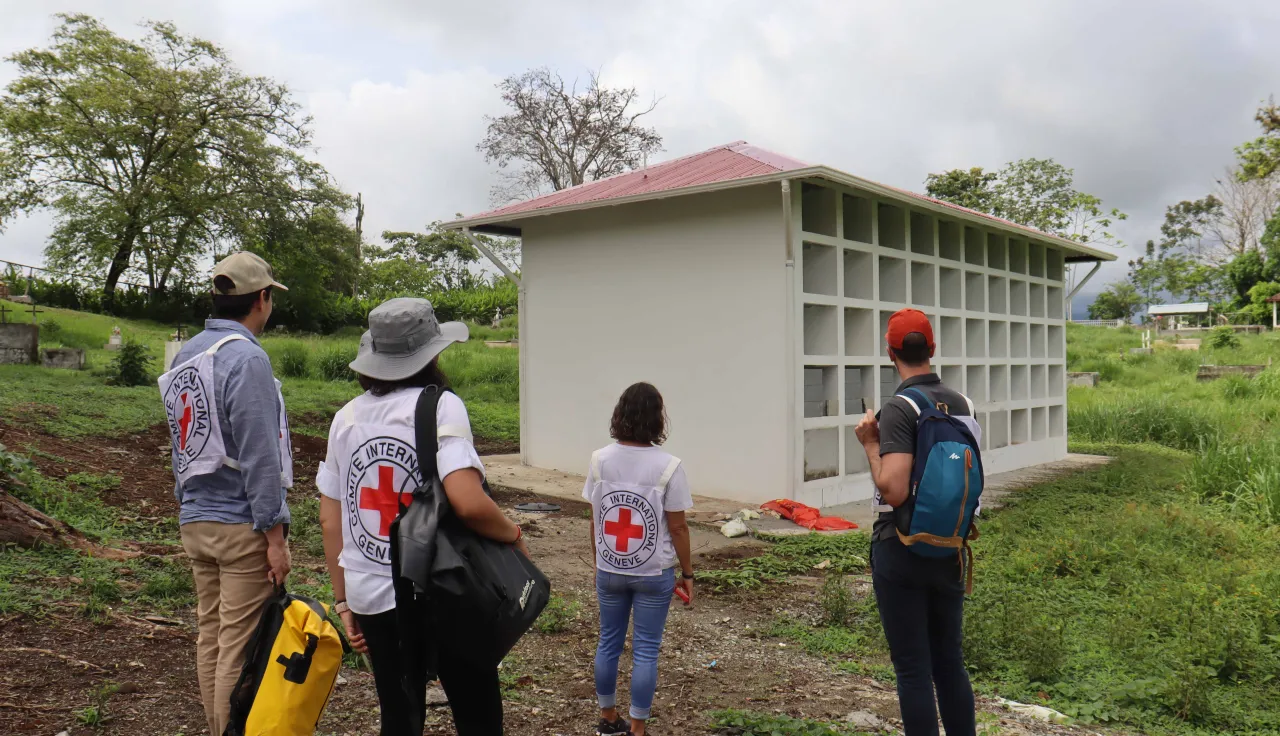
Darien, Panama. In the first six months of 2023, more than 200,000 people crossed the Darien Gap, a jungle that lies between Colombia and Panama; more than 60 migrants died in the attempt according to public figures from the Institute of Legal Medicine and Forensic Sciences (IMELCF). This figure is almost five times the number of people (33,819) who crossed the Darien Gap in the first five months of 2022 and more than the total number of migrants (109,293) between 2010 and 2019. According to Panama's Migration Authority and Ministry of Security, over the last four years more than 600,000 people have used this jungle as a migration route.
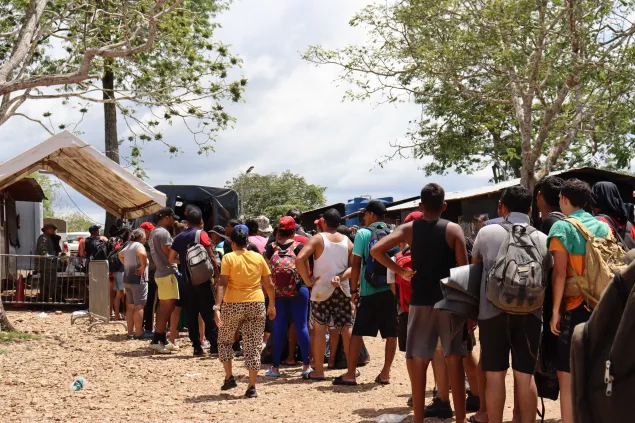
Migrants arriving at the migrant reception station in Lajas Blancas, Darien
The crossing is dangerous, and the number of migrants using the route is generating problems for local communities. When bodies of deceased migrants are carried down the rivers and wash up near their towns and villages, their water supply is affected, since these are the same rivers local people use for drinking, cooking and washing. Another issue is waste: most of the waste generated by local people and migrants ends up in the rivers, causing environmental pollution that mainly affects host communities.
The International Red Cross and Red Crescent Movement in Panama helps people to find out what has happened to their loved ones, using, for instance, reported deaths to inform the relatives of migrants who have died along the route. With the family's consent, the International Committee of the Red Cross (ICRC) passes on a request to the authorities concerned to search for and recover the loved one's body. At the same time, the ICRC provides advice and support to help the relatives navigate their way through the administrative and legal procedures, such as obtaining a death certificate.
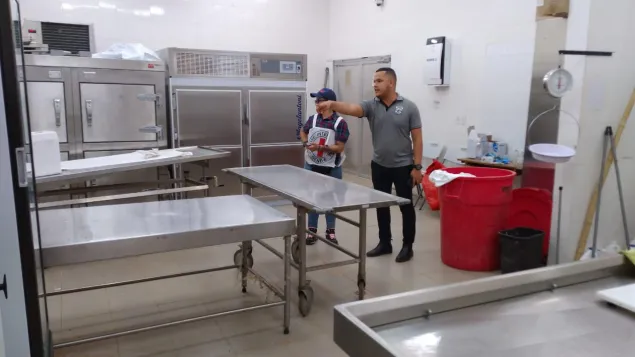
Visiting the Institute of Legal Medicine and Forensic Sciences, La Palma, Darien
Forensic experts carry out their scientific work to identify dead bodies and hand them over to their relatives so that the families can mourn and give them a proper funeral according to their customs or traditions.
In March this year, the ICRC, in cooperation with the municipality of Pinogana, Darien, and the Institute of Legal Medicine and Forensic Sciences, funded the construction of a "humanitarian forensic mortuary", consisting of 100 individual chambers that will provide dignified storage and traceability for the bodies of unidentified migrants who died while crossing the Darien Gap.
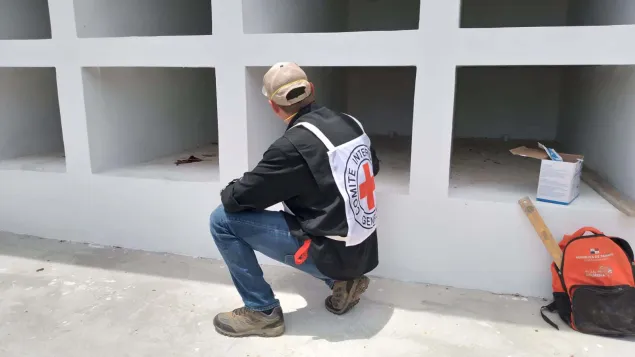
Humanitarian forensic mortuary
Throughout its history, the ICRC has worked tirelessly to prevent disappearances and to put separated family members back in touch. Currently, we help missing people and their families in around 60 countries worldwide.
"We provide humanitarian forensic technical advice, promoting the implementation of practices and standards on the subject so that the human remains of migrants who have died along the Darien route are managed in a dignified manner, identified and, if possible, returned to their families," said Marisela Silva Chau, head of the ICRC's regional delegation for Panama and the Caribbean.
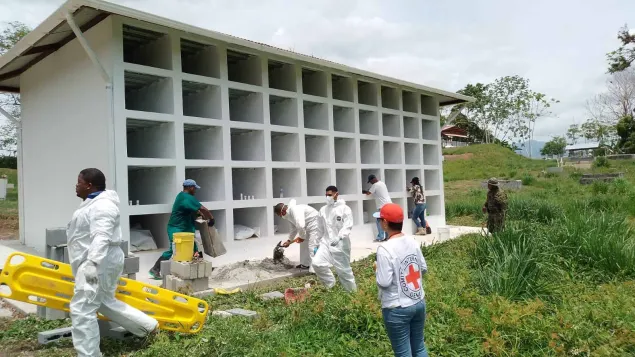
Solemn burial of unidentified and unclaimed migrants who died in the Darien Gap
"If we're speaking about humanity," says Jesús Espinosa, a member of the community in El Real de Santa María, "then everyone in this life has the right to a dignified place at the end of the road." Importantly, the mortuary is not only for migrants who have died along the Darien route, but also for people from the community itself who have died and where there is nowhere else to store them or any guarantee of a dignified burial. "Given the migrant situation in neighbouring countries and elsewhere, I think everyone should have the right to a proper funeral," says Jesús. When work on building these "vaults" began, Jesús asked the people in charge what they were for. They set his mind at rest, explaining that the project was intended to make it possible to bury migrants who died in the Darien jungle. Thanks to these explanations, the project has been accepted by the community. As Jesús says: "This will be there for those who need it."
The purpose of the humanitarian forensic mortuary is to facilitate the dignified burial of unidentified migrants who have died crossing the Darien and/or to identify them and return their remains to their families.
If you lose contact with a loved one, go to https://familylinks.icrc.org or visit your nearest Red Cross office.


